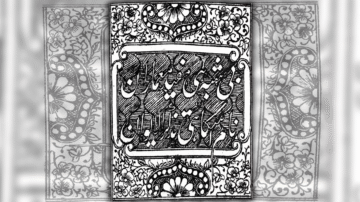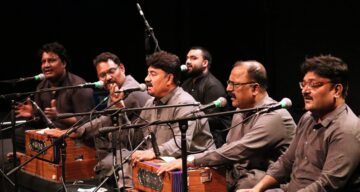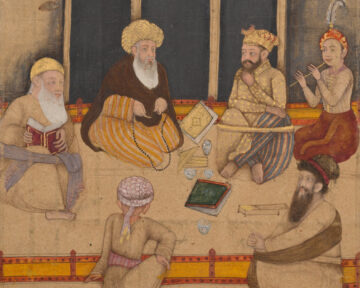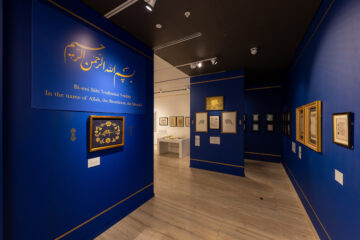- South Asian Studies
- Exhibition
Muslim Expressions from South Asia: Learning, Community and Voluntary Service
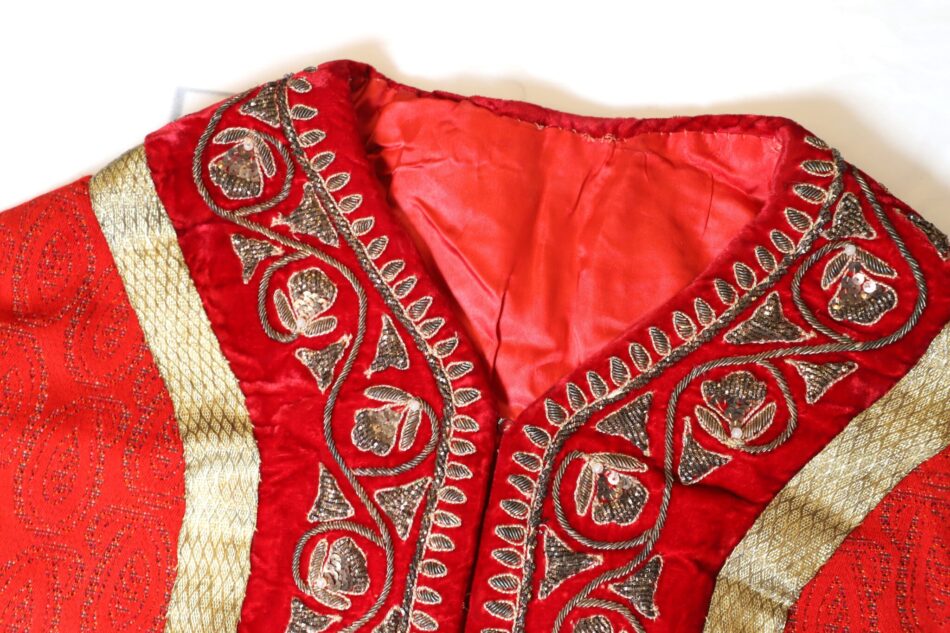
-
Status
Open -
Date
04 Jul 2025 to 02 Nov 2025 -
Location
Aga Khan Centre Gallery
South Asia, with its vast Muslim population and rich cultural traditions, has long been a place of vibrant religious exchange and expression. Within this context, Ismaili Muslims have contributed to the region’s rich traditions of learning, service and devotion.
This exhibition highlights these contributions through the lens of manuscripts, artefacts and photographs from the Institute of Ismaili Studies, showcasing how South Asian IsmailisAdherents of a branch of Shi’i Islam that considers Ismail, the eldest son of the Shi’i Imam Jaʿfar al-Ṣādiq (d. 765), as his successor. have upheld values of intellectual inquiry, community development and voluntary service across centuries.
Central to the religious life of the Ismailis are many learned traditions, especially the poetic compositions called Ginans, which express devotion and ethics in local languages, and their jama‘at-khanas, which serve as both places of worship and hubs for communal support.
The ethic of service, deeply rooted in Islamic teachings on compassion and community support, is particularly emphasized among Nizari Ismaili Muslims. Guided by values such as integrity and pluralism, their tradition of voluntary service – designated by terms like khidmat or seva – holds a religious significance and offers a means of social betterment.
This ethic is supported by structured volunteer systems and formal recognition from the community’s spiritual leader, the Imam, known as the Aga KhanA title granted by the Shah of Persia to the then Ismaili Imam in 1818 and inherited by each of his successors to the Imamate.. Today, Ismaili volunteers contribute not only locally but also globally through institutions such as the Aga Khan Development NetworkThe Aga Khan Development Network (AKDN) is a contemporary endeavour of the Ismaili Imamat to realise the ethics and social conscience of Islam through institutional action. More. These volunteers embody a contemporary, inclusive vision of Islamic service grounded in humility, excellence and ethical leadership. This exhibition brings to life these aspects through a number of rare artefacts and photographs.
Explore the Gallery
The exhibit is open on the ground floor of the Aga Khan Centre in London until 20 May, 2024. The gallery is open daily, from 10:00 – 18:00.


